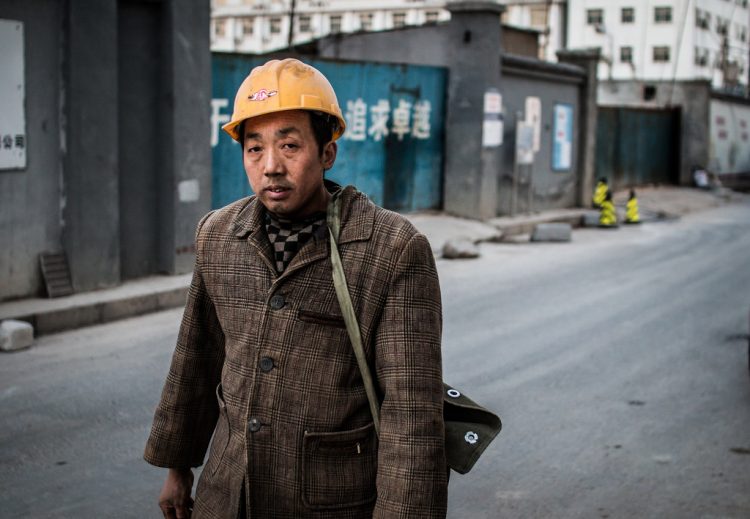
Photo credit: Matt Ming.
Much has been written about the threat Didi Chuxing and its new subsidiary Uber China face from draft regulations posed earlier this month by municipal authorities in Beijing, Shanghai, and Shenzhen. And make no mistake, Didi stands to lose a ton if these regulations go through. But as is so often the case in the games of the rich and powerful, the real losers here are likely to be poor migrants.
That’s because of one the major restrictions in the proposed regulations stipulates that ride-hailing drivers must have a local hukou.
Millions of jobs on the knife’s edge
The hukou is a government registration system that formally ties citizens to their place of residence. It was originally implemented to control the flow of people between the countryside and the cities, and although hundreds of millions of rural Chinese have migrated to cities over the past thirty years, most of those migrants are still tied to their rural hukou. Lacking a local hukou disqualifies these migrants from jobs, housing, and social benefits available to other city residents.
The rise of Didi and other ride-hailing companies has been a boon to some of these migrants. The barrier to entry is fairly low (all you need is access to a car and a driver’s license), and the pay is quite good compared to the kinds of manual labor and factory work many rural migrants are forced to undertake in cities. For example, a recent Economic Observer story on migrants from rural Hebei who drive for Didi said that they make between US$1,000 and US$1,500 a month. That’s a far cry from the US$300 to US$600 a factory worker might make. Didi and Uber China have given millions of rural migrants decent-paying jobs.
It’s not clear at all what these drivers will do if their jobs are regulated out of existence
But all of those jobs are now perched precariously on a knife’s edge. None of the proposed regulations have yet been formalized, but if they’re ratified as-is, drivers without a local hukou (or at least a local residency permit, which can be tough to get in big cities) would lose their jobs. So would any drivers with cars not registered with in-city plates.
At present, these restrictive draft regulations have only been released in Beijing, Shanghai, and Shenzhen, but other cities could follow suit. Even if they don’t, the impact of these laws being passed would be massive. In Shanghai, Didi says it has 410,000 drivers, and less than 10,000 of them have local hukous. It would be a brutal blow to Didi and would cause ride-hailing prices to skyrocket in Shanghai. But perhaps more importantly, it would also cost nearly half a million rural migrants their jobs.
And that’s just in Shanghai alone. Beijing and Shenzhen have similar draft rules in the offing, and if these regulations ultimately spread nationwide, millions of migrants could suffer the same fate.
Concerningly, it’s not clear at all what these drivers will do if their jobs are regulated out of existence. One of the drivers in the Economic Observer story is quoted as saying he’d just switch to driving an illegal taxi. Others would likely be forced to find worse-paying jobs in other industries, or return to agricultural work in the countryside.
That would obviously be terrible news for Didi, and a huge drop in the number of available drivers would also make life miserable for the millions and millions of passengers who use ride-hailing services. But in all the discussion of the commercial consequences, let’s not forget that these regulations coud also cause millions of poor migrants to lose their jobs without providing them any real recourse or a clear path forward.
But don’t lose hope
Thankfully, the draft rules in Beijing, Shanghai, and Shenzhen can still be changed, and other cities have proposed less restrictive rules. A Didi representative told Tech in Asia: “We are in active dialogue with central and local authorities and are encouraged by more forward-looking local proposed rules from quite a number of cities.”
This post The real victims of China’s new ride-hailing rules are not Didi and Uber appeared first on Tech in Asia.
from Tech in Asia https://www.techinasia.com/real-victims-chinas-strict-ridehailing-rules
via IFTTT
No comments:
Post a Comment